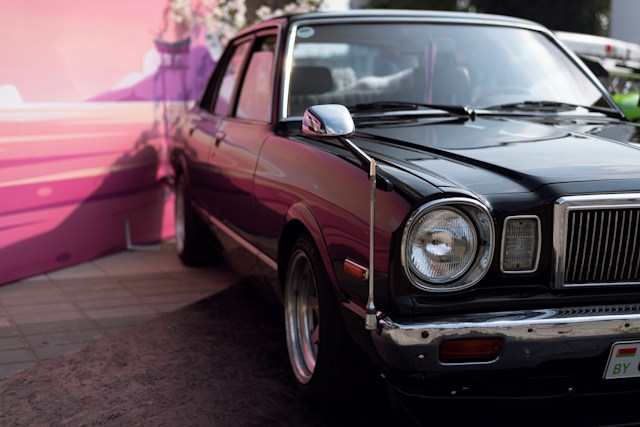When one thinks about investing, the usual suspects are stocks, bonds, or maybe a slice of real estate. But there’s a rumble from the East that’s been turning heads in the investment world—Japanese Domestic Market (JDM) cars.
These classic beauties from Japan are not only raising pulses at car shows but also raising questions about their value as investments. Let’s shift gears and explore whether here parking some cash in the garage with a JDM vehicle is a savvy financial move.
Revving up interest in classic Japanese cars
The allure of Japanese automotive engineering has never been stronger. Classic cars from Japan have been steadily cruising into the spotlight and enthusiasts are paying attention.
These vehicles are more than just a token of the past; they’re masterpieces of design and performance that hold a special place in the hearts of car buffs. Take Toyota’s lean manufacturing, for example. The concept is based on reducing waste while maximizing efficiency. This concept also gave birth to Agile software development meaning that the way Japanese build their cars can be applied to various other processes and industries.
Each model tells a story, and when they hit the auction block or the showroom floor, their tales of nostalgia and rarity are what draw both collectors and investors alike.
Comparisons to conventional investments
As unorthodox as it might seem, classic JDM cars can complement traditional investment portfolios. While no one’s suggesting replacing your IRA with a garage full of Nissan Skylines, there’s something to be said for the tangibility and pleasure that comes from investing in a classic car.
Unlike stocks or real estate, a JDM investment is visceral—you can see it, touch it, and hear that distinctive engine note. And unlike the volatility of the stock market, the value of a well-chosen JDM classic may appreciate steadily, making it a potentially less stressful investment.
Analyzing the JDM investment landscape
To discern whether a classic JDM car is a wise investment, one must look at market trends and historical data. Here, amid numbers and spreadsheets, is where you’ll find the heartbeat of potential—not every JDM car is going to skyrocket in value, but certain models have been known to appreciate impressively.
Spotting these hidden gems requires knowledge and sometimes a bit of luck. Identifying models that are in demand and likely to become even more sought after is key to turning an automotive passion into a financial gain.
Overcoming the investment roadblocks
Investing in JDM cars can have its set of challenges. For one, the legal maze of importation laws can prove daunting. Car enthusiasts often stumble upon red tape involving age restrictions and compliance with local regulations.
Then there’s the matter of upkeep for these classic machines—spare parts may not be readily available and specialist know-how is often a must. These are not merely investment pieces; they’re living, breathing engines of history that demand attention and care. Balancing their well-being with the drive to see investment growth is crucial.
The joys of JDM ownership
Despite potential hurdles, the joys of owning a piece of automotive history are manifold. The thrill of the drive, the nods of recognition from fellow car lovers, and the sense of belonging to a community of passionate enthusiasts—all these factors fuel the desire for JDM car ownership. And when managed well, these cars can become more than just a hobby; they can be a substantial, enjoyable investment.
Insuring your vehicle adequately, maintaining its condition and keeping connected with the wider JDM community will ensure that your classic car retains its value, both financially and personally.
So, is putting your money in a classic Japanese car a wise choice? Like any investment, it comes with risks and rewards. With adequate research, judicious selection, and a bit of automotive passion, investing in a JDM car could offer you not just a decent financial return, but also the undeniable joy and prestige of owning a piece of automotive culture. And that bundle of joy—purring in your garage ready for a Sunday drive—is something no stock certificate can offer.







